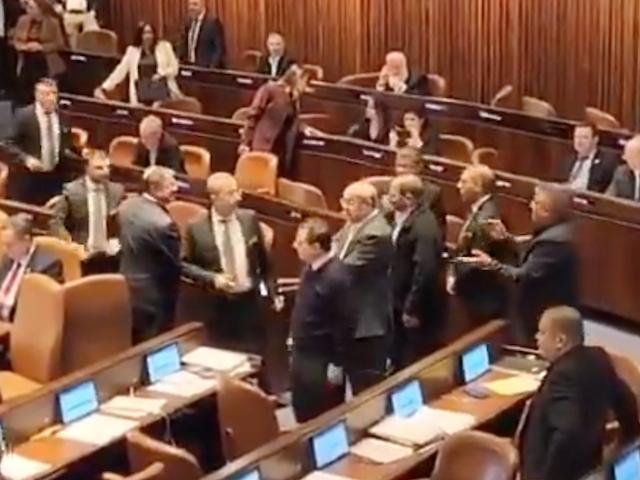The Israeli Knesset recently faced a pivotal moment when it deliberated on a motion proposed by the House Committee to revoke the Knesset membership of MK Ofer Cassif of the Hadash-Ta’al party. The motion, spurred by MK Oded Forer of Israel Beitenu and grounded in section 42a(c) of Basic Law: The Knesset, did not achieve the required majority for approval. Despite garnering support from 85 MKs, it fell short by five votes, primarily because members of Yesh Atid and Labor abstained from voting.
The background to this motion was intense and multifaceted. The House Committee, led by MK Ofir Katz of Likud, had conducted thorough deliberations, including consultations with the Attorney General's representative and the Knesset's legal counsel. The discussions led to a unanimous conclusion: signing a petition against the State of Israel was deemed equivalent to endorsing the armed struggle of Hamas.
The commotion in the Knesset when the vote to impeach MK Ofer Cassif did not pass 👇🏽 pic.twitter.com/7u5xcL36bQ
— Adam Albilya - אדם אלביליה (@AdamAlbilya) February 19, 2024
According to Chairman Katz, Cassif's actions were tantamount to supporting terrorism and legitimizing violence against IDF soldiers, thus undermining Israel's sovereignty and dignity. Katz's portrayal of Cassif was of an individual whose presence in the Knesset was a "disgrace" and whose actions during a time of conflict were seen as a "betrayal" of the State of Israel and supportive of a terrorist organization's objectives.
Echoing Katz's sentiments, MK Forer criticized Cassif's views on IDF soldiers and members of the war cabinet, labeling them as war criminals. Forer emphasized the importance of the Knesset's role in defending Israel's right to self-defense, referencing a statement by Supreme Court Justice Barak regarding Israel's legal standing at The Hague. Forer's plea to the Knesset was clear: support the IDF soldiers on the front lines and reject any claims that undermine their legitimacy and sacrifice.
During debate ahead of Ofer Cassif impeachment vote MK Merav Cohen says she wants to speak about what’s really important and starts counting (reference to the hostages) pic.twitter.com/9tQpCP3mnc
— Sam Sokol (@SamuelSokol) February 19, 2024
In response, MK Cassif vehemently denied the accusations, framing the termination request as based on falsehoods and asserting his opposition to Hamas's armed struggle. He characterized the motion against him as an act of political persecution aimed at silencing critical voices, particularly those representing Arab citizens, and as an attempt to marginalize them from public and parliamentary discourse.
This episode in the Knesset underscores the complex interplay of legal, political, and ethical considerations in Israel's parliamentary democracy. It highlights the tensions between freedom of expression and the imperative to safeguard the nation's security and public order. The debate over Cassif's membership raises crucial questions about the limits of dissent and the definition of loyalty within a democratic framework, reflecting broader dilemmas facing societies committed to democratic principles and the rule of law.


